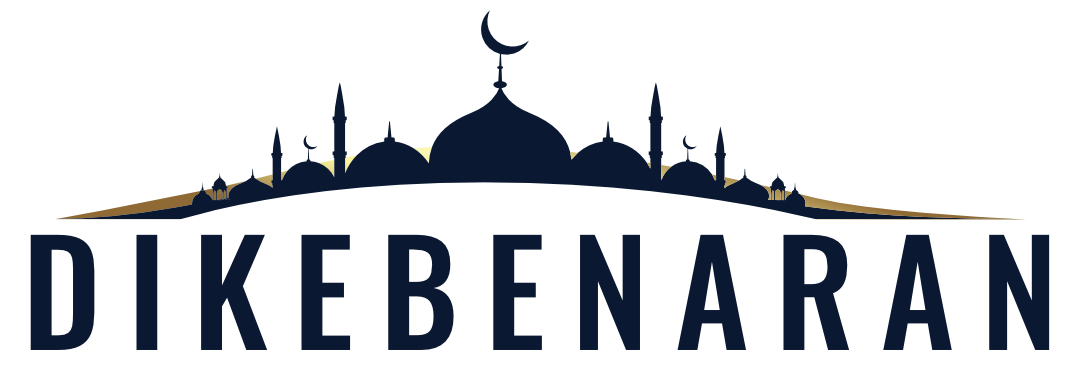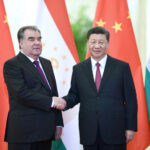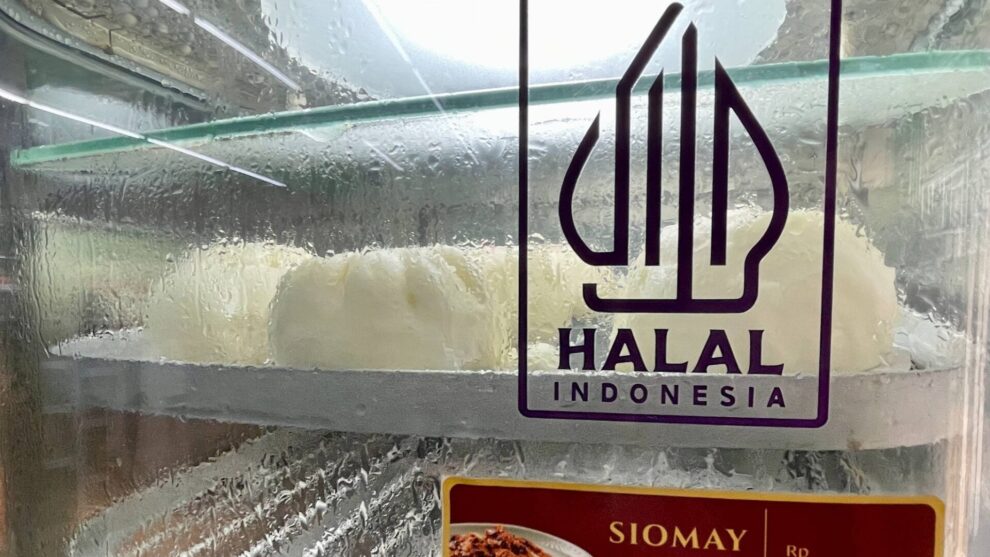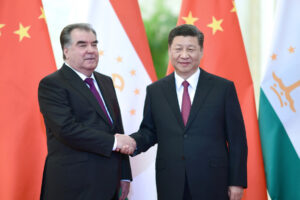Government hopes to spur spending with new certification requirement
Restaurants, retailers and other food businesses in Indonesia are scrambling to meet a government mandate requiring official certification for their halal products by 2024, as Jakarta seeks to promote economic activities compliant with Islamic law.
At one FamilyMart convenience store in Jakarta, staffers would face questions constantly from customers about whether the steamed buns in its display case were halal. Those questions have stopped since the store displayed a seal from Indonesia’s Halal Product Assurance Organizing Agency (BPJPH), a cashier there said.
In mid-April, Fajar Mitra Indah, a unit of Indonesian conglomerate Wings Group and the local operator of FamilyMart, announced that it was certified halal by the government. The certification indicates that all food and drink prepared in-store are deemed to be made using ingredients and processes compliant with Islamic law.
Meanwhile, the local operator of Lawson stores, Sumber Alfaria Trijaya, is also seeking certification for the convenience chain. Restaurants affiliated with the Kopi Kenangan coffee chain, as well as sushi chains like Ichiban Sushi and Genki Sushi, have already received approval.
The Indonesian government is requiring food and beverage companies to obtain halal certification from the BPJPH by October 2024, threatening to impose fines or withdraw products from circulation if they fail to meet the deadline. It plans to gradually expand the requirement to other business areas as well.
Non-halal foods can still be sold in Indonesia after October 2024. But they will need to be labeled as such, meaning they likely will no longer be able to rely on the country’s Muslim majority for sales.
 A shopkeeper arranges snacks at a convenience store in Jakarta. The government is pushing retailers and companies to become Halal-compliant. © Reuters
A shopkeeper arranges snacks at a convenience store in Jakarta. The government is pushing retailers and companies to become Halal-compliant. © Reuters
The clock is ticking for companies to comply. The application process for a restaurant chain, for example, takes around three weeks, according to the Ministry of Religious Affairs, which oversees the BPJPH. It can take several more months for companies to review their supply chains and resolve any issues.
The new requirement is part of efforts by President Joko Widodo to build greater confidence in the country’s halal products. While Indonesia is home to the world’s largest Muslim population, the typical certification offered by the Indonesian Ulama Council (MUI) is considered more lax than those in other countries.
In contrast, the halal certification issued by Malaysia’s government agency overseeing Islamic affairs is considered the golden standard around the world.
While the Widodo administration has sought to increase government oversight over the certification process through the BPJPH, the MUI will continue to handle the screening and approval process.
The updated halal requirement is expected to boost household spending, which accounts for around half of Indonesia’s gross domestic product. Reciprocal certifications between countries could expand Indonesian exports as well.
Obtaining halal certification can be extremely expensive, and the state is currently shouldering the associated costs for small and medium businesses. But it remains unclear what assistance it plans to offer when it expands certification requirements to other goods and services.
 Halal-related businesses are booming, such as a dating app for Muslims called Hijra Taaruf. (Photo by Koya Jibiki)
Halal-related businesses are booming, such as a dating app for Muslims called Hijra Taaruf. (Photo by Koya Jibiki)
Still, many Indonesian businesses see the move as a way to attract more Muslim customers at home and overseas, at a time when many of the country’s sectors are seeking to appeal to the country’s more religiously-minded population.
Around 100 companies, including those in food, cosmetics, real estate and fashion, participated in the recent Halal Move on Fest Ramadhan trade show in Jakarta, with over a thousand people attending the event each day.
Meanwhile, Muslim dating app Hijra Taaruf, which fully launched in 2022, now boasts over 400,000 users. Designed with Muslim customs in mind, the app requires chaperones for first dates.
And State-run Bio Farma developed a halal COVID-19 vaccine called IndoVac in 2022, which it aims to export to countries in Africa and other markets. A local arm of Unilever set up a research and development hub focused on halal products in Indonesia in 2021.
But by and large, the country has lagged behind several other nations in developing its Islamic economy, despite having a larger Muslim population. It came in fourth out of 81 countries in the 2022 Global Islamic Economy Indicator rankings by U.S.-based Dinar Standard, with Malaysia taking the top spot.
The Widodo administration has responded by publishing the Islamic Economic Master Plan, covering a range of industries from food to fashion, tourism and finance. For the five-year period ending in 2025, the government expects domestic consumption of halal products and services to grow 15% to $281.6 billion.
Source : Nikkei Asia















